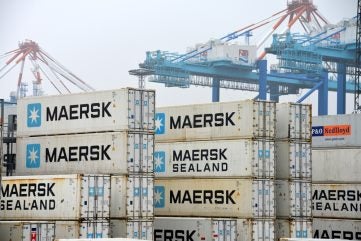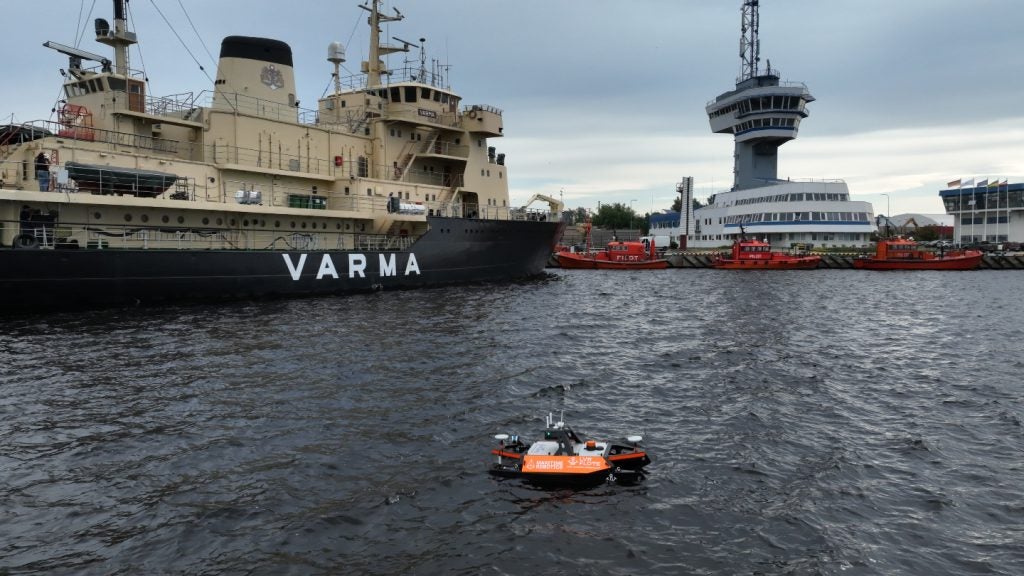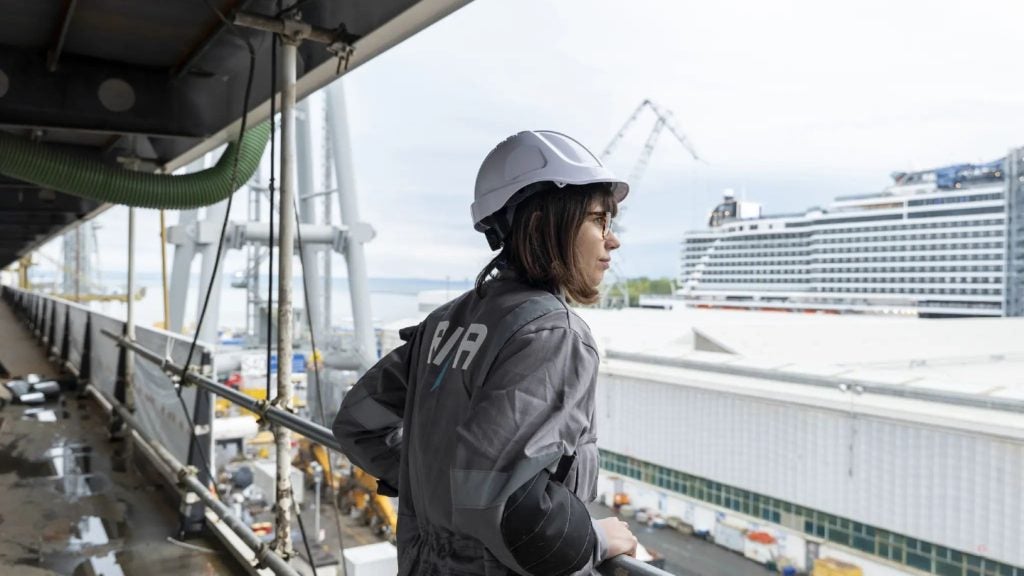
Danish container shipping giant AP Moller-Maersk has declared its full-year financial results for 2023 “solid” and “in line with guidance”, despite “substantial declines” across key measures.
The shipping line said “a difficult market environment” was to blame, with global challenges accelerating and prices dropping again after the pandemic boon.
Overall revenue dropped from $81.5bn to $51.1bn (-$30.5bn), the majority of which was attributed to Maersk’s Ocean segment. Net profit fell to $3.9bn from $29.3bn.
The company said the ocean division was impacted by “the inventory corrections seen in Western economies”, which resulted in reduced container volumes and significantly lower freight rates.
Although the decrease in revenue was far shallower for Maersk’s Logistics & Services division, at $507m, it was also impacted by global trends – notably cheaper air freight rates and lower-than-expected growth in Europe and China.
A similar trend was seen in its terminals business, although decreases were controlled via “strong cost control”, according to the Danish company.
How well do you really know your competitors?
Access the most comprehensive Company Profiles on the market, powered by GlobalData. Save hours of research. Gain competitive edge.

Thank you!
Your download email will arrive shortly
Not ready to buy yet? Download a free sample
We are confident about the unique quality of our Company Profiles. However, we want you to make the most beneficial decision for your business, so we offer a free sample that you can download by submitting the below form
By GlobalDataShare position
Maersk described its declining share price as “broadly aligned with global peers”. Although the price fell by 22% across the full year, it did bounce in December on the back of freight rate hikes subsequently influenced by the ongoing Red Sea / Suez crisis.
The price also takes into account the share buy-back programme the container line has run through the year, and the dividend in March returning $10.9bn to shareholders.
As part of the company’s long-term plan, it bought back millions of shares over 2023, 332,309 A shares and 1,327,842 B shares. The shares were worth approximately $3.1bn.
The company confirmed it now owns “a total of 306,636 A shares and 1,279,120 B shares as treasury shares”. That equals 9.03% of global share capital.
The buy-back programme was slated to last at least another year, to 2025. But the board of directors has instead decided to halt the share purchasing with immediate effect, citing “the heightened uncertainty” of the shipping sector at the start of this year.
Looking ahead
AP Moller-Maersk CEO Vincent Clerc described 2023 as a “transitional year” and pointed to “further progress” in the year ahead.
He said: “2023 was a transitional year following the extraordinary market boom caused by the pandemic. We secured solid financial results despite significantly changed circumstances, and we are well-positioned to manage the expected headwinds in 2024. By taking early and decisive measures to enforce strict cost management, we adapted to the new reality. We need to see further progress in the logistics business to align with our targets, as we continue to push our transformation forward and enhance our competitiveness.
“The current market remains one of robust volumes, but while the Red Sea crisis has caused immediate capacity constraints and a temporary increase in rates, eventually the oversupply in shipping capacity will lead to price pressure and impact our results. The ongoing disruptions and market volatility emphasise the need for supply chain resilience, further confirming that Maersk’s path toward integrated logistics is the right choice for our customers to effectively manage these challenges.”






